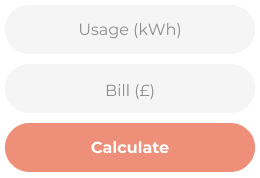

Whether you’re looking to cut costs, reduce emissions, or get ahead of market volatility, we make energy work harder for your business, with no upfront cost and all the benefits of advanced optimisation.
Whether you’re looking to cut costs, reduce emissions, or get ahead of market volatility, we make energy work harder for your business, with no upfront cost and all the benefits of advanced optimisation.
We’re able to guarantee you a
1-3p/kWh lower rate than best fixed tariff in the market. This is because of how our AI platform charges up your batteries when prices are low and uses this energy when demand or prices rise.
Calculate your savings
Learn moreMaximise your carbon and cost savings with AI-driven monitoring that analyses and enhances the ROI of your renewable investments.
Take control
Store low-cost power, minimise surcharges, have backup when you need it, reduce carbon emissions and optimise your energy use.
Show me how
Get tailored solutions to help achieve your Net-Zero goal. Improve offsetting and efficiency, leverage renewables and electrify your fleet.
Show me how
Stop paying more than you need to for energy. Switch to our Smart Battery Tariff using our Battery Energy Storage System and our AI optimisation guarantees you savings between 10-25%.
Enter your annual electricity use and see what smart AI could save you.

Artificial Intelligence is the (artificial) brains behind our bill slashing ability, predicting costs and optimising your energy use in real-time, giving you instant savings for the long-term. Like we said, no brainer.
upfront costs
electricity volume optimised
customer batteries deployed
of smart EV assets connected
Stop paying more than you need to for energy. Switch to our Smart Battery Tariff using our Battery Energy Storage System and our AI optimisation guarantees you savings between 10-20%.
Enter your annual electricity use and see what smart AI could save you.

In just four steps, we turn your energy from an overhead into an opportunity, with no hassle, hidden costs or guesswork.
After a thorough energy audit, we’ll put together a detailed plan for your business to reduce carbon emissions, helping you work towards your sustainability goals.
We’ll work with you to decide which tools will deliver the best cost savings and carbon reduction for your business, and then we’ll install them.
Hooking you up to our AI powered energy management platform will provide you with real time alerts and insights so you can monitor and control your energy, and use it more efficiently.
See cost savings, accurate data on asset performance, operational efficiencies, and new revenue streams within the first few months. Monitor the results and get carbon reports and Net-Zero accreditations using your energy management dashboard.

Explore the ideas, insights, and innovations that fuel Q Energy’s smarter approach. From decoding energy market shifts to demystifying AI, our insight hub keeps you a step ahead in the energy conversation and the savings race.
Find out more
Store low-cost power, minimise surcharges, have backup when you need it, reduce carbon emissions and optimise.
continue reading

Store low-cost power, minimise surcharges, have backup when you need it, reduce carbon emissions and optimise.
continue reading

Store low-cost power, minimise surcharges, have backup when you need it, reduce carbon emissions and optimise.
continue reading

Store low-cost power, minimise surcharges, have backup when you need it, reduce carbon emissions and optimise.
continue reading
Explore the ideas, insights, and innovations that fuel Q Energy’s smarter approach. From decoding energy market shifts to demystifying AI, our insight hub keeps you a step ahead in the energy conversation and the savings race.
Find out more.png)
A major global bank was facing high electricity costs across five office buildings and a data centre, with annual...
continue reading
.png)
With the decarbonisation of heat and electrification driving up consumption, electricity procurement for high energy users...
continue reading
.png)
Future-focused energy solutions provider Q Energy is on a mission to save businesses money on their electricity bills...
continue reading

The UK's energy market is undergoing a seismic shift, and Small and Medium Enterprises (SMEs) are in the eye of...
continue reading